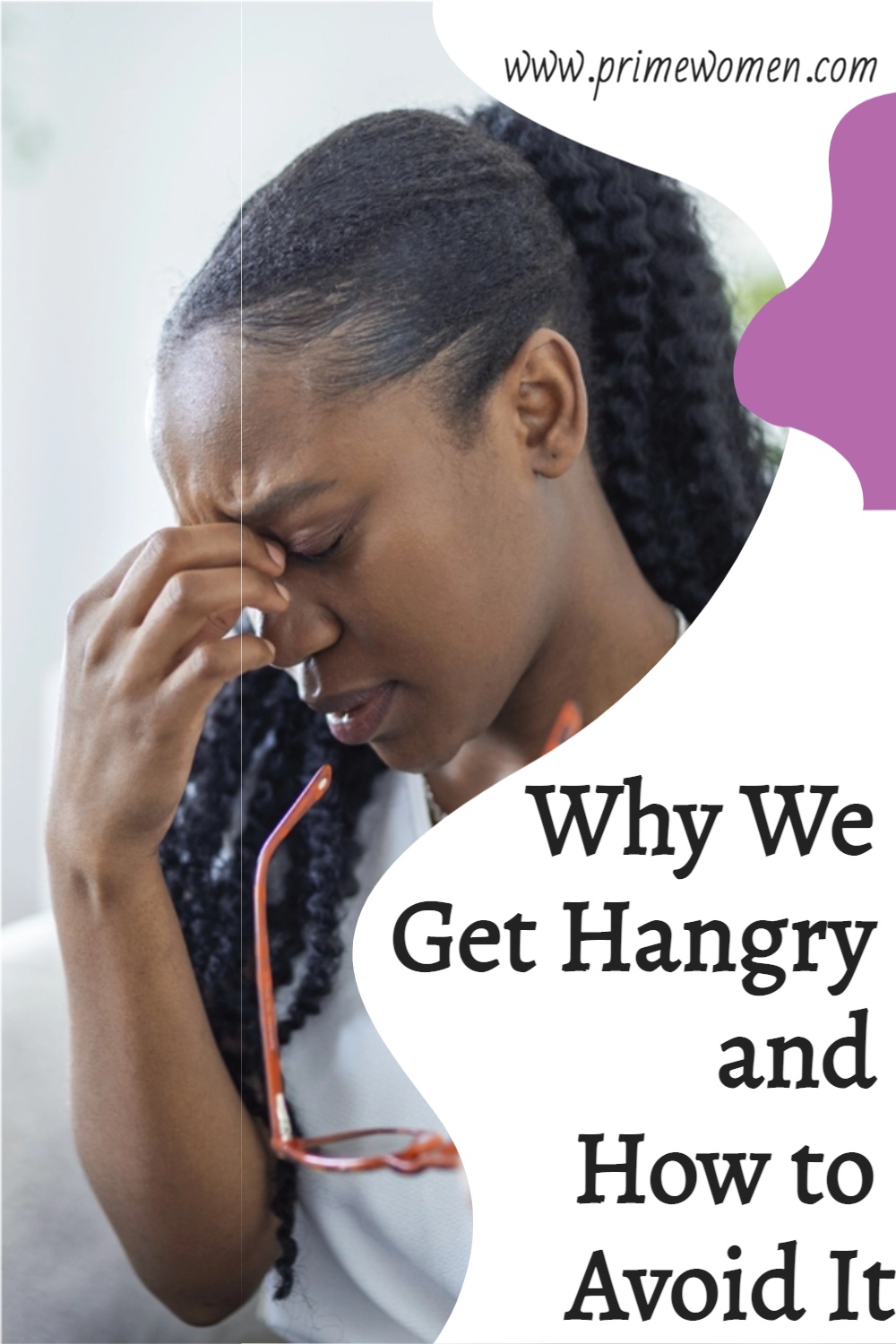Here’s the scenario—you’re in a productive meeting or are cranking away on a project and don’t want to stop for lunch. Your belly is rumbling, signaling to you that it’s time to eat. Breakfast was many hours ago, and coffee can only suppress your appetite for so long. But you ignore the signals and keep on working. Then suddenly it hits—that hangry feeling.
As soon as it strikes, your mood quickly changes from productively content to ornery and anxious. Next thing you know, you find yourself snapping at co-workers, your spouse, or even your kids. Then someone close to you, who’s seen it happen before, says, “You need to eat something…” They think they understand, but to you, their words feel patronizing.
So you bark back, “I’m fine!” After all, it’s not like you want to feel this way or that you choose to be hangry; really, it is more like an out-of-body experience. The worst part is that you can’t seem to control the irritability. And if you can’t manage your own body, how are you supposed to manage other people?
We’ve all been there.
The feeling of being hangry usually is a sign that your blood sugar is low because you’ve gone too long without eating. When our brain feels anxious, it doesn’t think logically about the reality of what’s happening in the body or tune into what the body needs.
In a panic, we grab the quickest, most convenient option, which often involves sugar—the great emotional regulator. But what goes up must come down. Sugar takes our bodies on a roller coaster ride. And sugar is merely a short-term fix that unfortunately comes with long-term ramifications.
Eating refined carbohydrates (sugar, crackers, cookies, candy) on a regular basis leads to hormonal and metabolic problems.
Blood sugar control is a complex hormonal issue, and a blood sugar crash triggers a cascade of reactions in the body related to stress hormones. Specifically, your body releases cortisol and adrenaline to keep you going when your body is hungry and not getting any food.
When this happens repetitively, it can cause inflammation, suppressed immune function, heart disease, insomnia, weight gain, and hormonal imbalance. This is a vital aspect of health that we all need to take a closer look at if we want to experience what it feels like to live in a healthy body.
Whole-body health begins with the gut and everything you eat, which is also true for blood sugar regulation. While dietary change is important, healthy gut bacteria and the microbiome influence glucose levels, as does our PH level. Factors like eating processed foods, including sugar, antibiotics, chronic stress, and aging, all throw off bacteria levels in our gut and create a more acidic environment in the body. Alkalizing foods and keeping PH levels in the alkaline range assists in cells being able to metabolize glucose, decreasing the risk for insulin resistance.
While some practitioners recommend eating regularly throughout the day to avoid symptoms associated with low blood sugar, I believe it’s more about quality than frequency or quantity. The solution to hanger isn’t just eating more frequently—it’s about understanding what’s happening in the body and working to create more balance.
There is evidence that paleo and ketogenic diets can help heal blood sugar problems, including hypoglycemia. Having followed a paleo diet for over fifteen years and helping hundreds of clients break free from sugar and processed foods, I believe this to be true. So while this may sound complex, as a health coach, I empower women to feel and be their best by breaking it down into do-able steps.
8 Ways to Avoid Being Hangry:
1. Pay Attention
Start paying closer attention to how you feel about certain foods and how they impact your mood and blood sugar. A food diary is a great way to tap into more insight into how food affects you.
2. Plan
When planning out your day, make to-do lists and include when, where, and what you will eat.
3. Have a Stash
Keep a stash of healthy snacks (nuts are one of my favorite go-to snacks) in your purse or desk so you can avoid getting to the point of being starving and triggering the hanger feeling.
 4. Add-in Healthy Ingredients
4. Add-in Healthy Ingredients
Incorporate healthy fats, fiber, and protein into meals—these are all blood sugar regulators.
5. Protein
Start your day with a protein smoothie, eggs, or avocado toast. Or make these Hearty Protein Breakfast Muffins for an easy, on-the-go snack.
6. Skip the Grains
Consider going grain-free because grains (even whole grains like quinoa, millet, oats) can contribute to the sugar cravings cycle.
7. Limit Coffee
Coffee can trigger major blood sugar fluctuations—especially if you are caffeine sensitive, so consider switching to 1/2 decaf 1/2 regular or eliminating it altogether. (Granted giving up coffee might induce more anger than being hungry!)

Mommee Coffee – Organic Half Caff, Low Acid Coffee, $14.99
8. Meditate
Carve out at least five minutes a day to meditate. Use an app like Headspace, Calm, or some other form of guided meditation to guide you along on your wellness journey.
Incorporating these suggestions into your lifestyle is not just about nourishment or lifestyle management; it’s about tuning into self, inner wisdom, and balance. After all, health is our greatest wealth.
Healthy Snacks To Keep Hunger At Bay:

Made Good Healthy Snacks Variety Pack – 40 Count, $29.99

gimMe Organic Roasted Seaweed Sheets – 20 Count, $12.47

Smartfood Popcorn Variety Pack – 40 Count, $13.98

SkinnyDipped Almonds Variety Pack – 25 Count, $24.99

Healthy Snacks to go Variety Pack – 66 Count, $38.79
Read Next:
7 Steps to Limit Daily Sugar Intake Once and For All
Does Metabolism Really Slow As We Age?
The post Why We Get Hangry and How to Avoid It appeared first on Prime Women | An Online Magazine.









